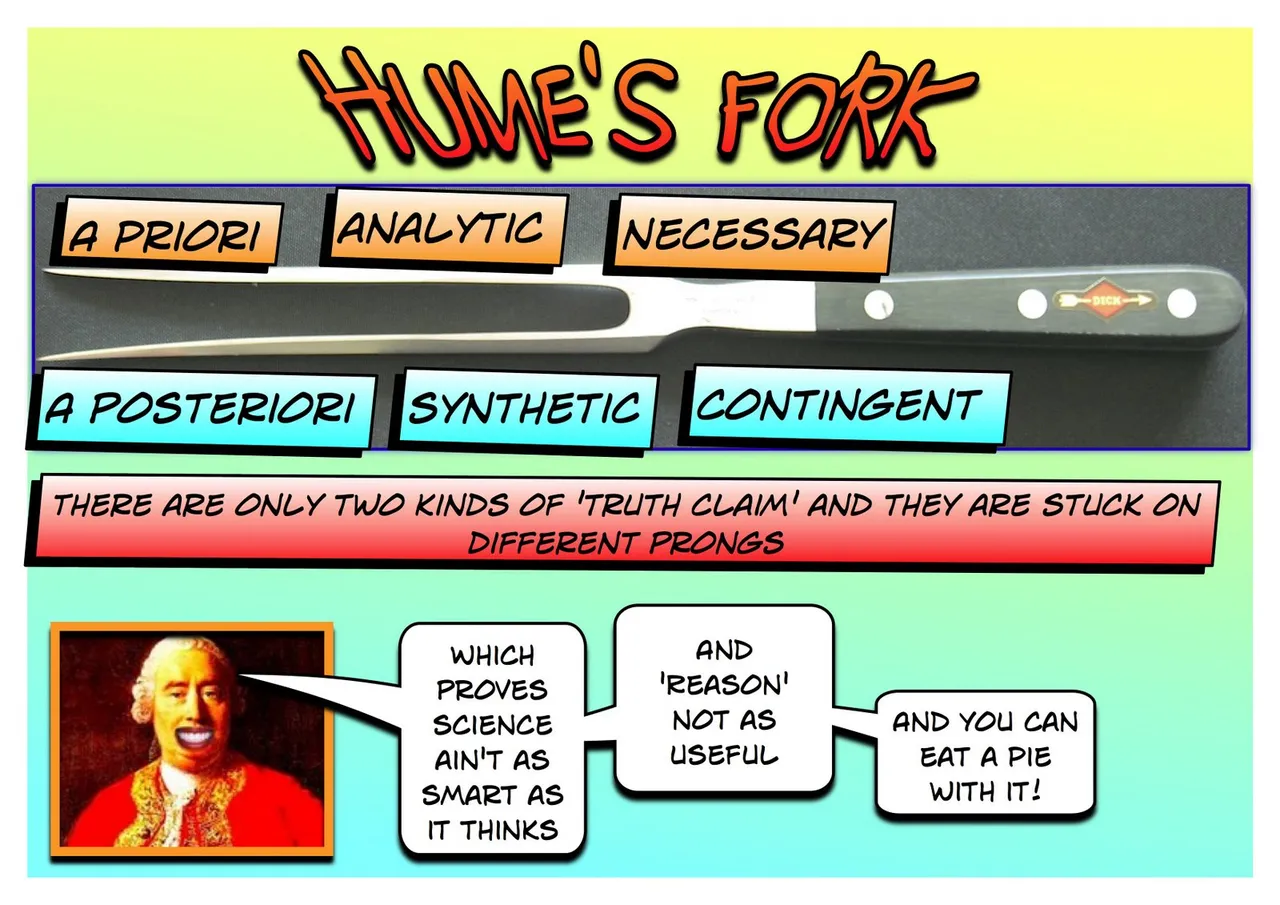
I am not a philosopher. I am unable to see beyond Hume’s fork. I cannot fathom how anyone can argue that it is possible to get an ‘ought’ from an ‘is’ or vice versa. As a purely theoretical matter I am persuaded by the standard positive/normative, fact/value divide. I understand that in practice matters are complicated and they get mixed up. But it seems to me, as a logical matter, it is always possible to disentangle them and deal with each kind of statement separately – the moral and the factual. So, I see the following kinds of possible statements.
(Potentially) Verifiable statements (particulars)
• Some swans are black
• Napoleon rode a white horse on that day
• Measles can cause blindness(Potentially) Falsifiable statements (generalities)
• All swans are white
• Measles cannot cause blindnessValue statements – not verifiable or falsifiable
• Compassion is a worthy emotion
• Racism is morally repugnant
I cannot see any way to logically link statements of type 1 or 2 to statements of type 3, in the sense that the former implies the latter or vice versa. Furthermore, any policy statement must contain both types 2 and 3 to be coherent.
Apparently some philosophers do not accept this, about which I am at a loss.